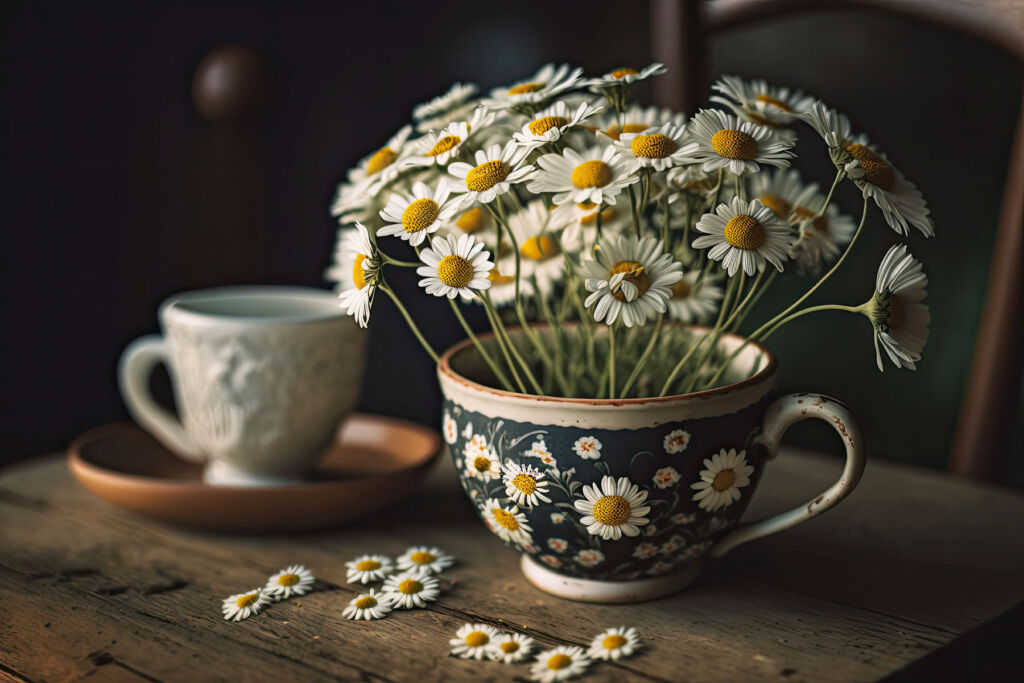
Plants can bring much more than a dash of colour and a beautiful fragrance. There are some varieties that have been proven to be very beneficial in reducing stress and improving mental well-being, and in this feature, Dr Daniel Glazer of UK Therapy Rooms explains which ones we should have in our homes and why.
The Japanese principle of Shinrin-Yoku, or ‘forest bathing’, maintains that spending time in natural environments is beneficial for health, and it’s not just hearsay. Studies have proved that walking through a forest for just 15 minutes a day substantially lowers blood pressure and the stress hormone cortisol when compared with walking through an urban area.
Although not everyone has access to a forest, park, or larger green area, it’s simple enough to pick up a houseplant from a garden centre or supermarket to bring some greenery into your home.
Your choice of houseplant depends on how much space, time, and money you’re willing to invest in your new acquisition. However, the following plants not only have characteristics that aid in stress relief but are easy to care for too:
1. Lavender
Famed for its dreamy scent, Lavender is the ideal plant to have in your bedroom, as its benefits include not only stress relief but improved sleep too. Lavender is remarkably easy to grow, and when placed in a sunny spot (a windowsill is perfect), its flowers will bloom in late spring and provide colour and scent all through the summer months. Lavender isn’t just visually appealing either; the flowers can be cut and used in herbal tea to wind down before sleeping.
2. Mint
Another herb that produces a distinctive scent, this cheerfully green and bushy plant has been proven to increase alertness and enhance short-term memory. Mint is best kept in your kitchen, but not just to brighten up the space. Much like Lavender, the leaves can be used in a relaxing herbal tea blend but also in a refreshing mojito mock or cocktail!
3. Chamomile
Known primarily as an outdoor plant, Chamomile is perfectly happy to be kept indoors too, and the bushier Roman variety can brighten up the dullest of spaces in colder months. Proven to improve both mood and memory with its sweet scent, this vibrant and hardy flowering plant is the perfect companion to help bring the outdoors in. A favourite ingredient in relaxing herbal teas, Chamomile is known to improve sleep quality!
4. Jasmine
There are several varieties of this sweet-smelling floral plant, with blooms ranging from white to pink and pale yellow. So whether you opt for the climbing summer jasmine or the more shrublike winter variety, you’ll be provided with star-shaped clusters of blooms with their heady scent, known to ease anxiety and promote restfulness. Best placed somewhere warm and with partial sunlight, jasmine is the ideal plant to have in a living room or reading nook to really appreciate its soothing aroma.
5. Rosemary
Although regarded primarily as a savoury addition to cooking, rosemary is also used in aromatherapy because of its invigorating and woody scent. Ideal for invoking a walk along a Mediterranean hillside, rosemary needs plenty of sunlight to thrive, so a kitchen windowsill is an ideal spot.
The hardy leaves can be cut throughout the year to use as a fragrant addition in cooking or brewing tea, but just smelling this earthy plant has been proven to lower cortisol levels.
Dr Daniel Glazer, Clinical Psychologist and co-founder of UK Therapy Rooms, says, “Holistic strategies take a whole-person approach to stress management, focusing on the physical, emotional, social and mental aspects of well-being. Some effective holistic strategies for stress management include mindfulness meditation, yoga, exercise, healthy eating, and getting enough sleep.
Small changes in our environment can also help to play a part in different elements, such as lighting, noise, or even temperature, which has proven to impact our mental well-being. Studies have also shown that those who spend time in nature and substantially more likely to report better mental and physical health, and this even extends to houseplants which have been proven to reduce stress.
However, it is important to approach in a personalised way, considering what someone needs, finds helpful and can make use of in their own life.”
Read more lifestyle news, guides, and features here.

![]()




You must be logged in to post a comment.